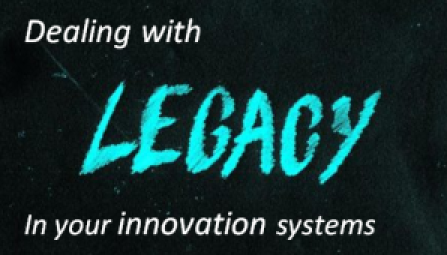
Often organizations are weighed down by legacy; it chokes off innovation and much of the potential creativity. This comes in many forms; in its culture, in its history, its core markets or products, in its systems, structures, and processes built around innovation practice.
Today, we are confronted with a very different global marketplace than in the last century. National borders and regulations built to protect those that are ‘within’ in the past have rapidly become a major part of the ‘containing- restraining’ factors that are rendering many previously well-respected organizations as heading towards being obsolete and not in tune with today’s different world where global sourcing determines much.
They are increasingly trapped in declining markets, starved of the new capabilities and capacities to grow a business beyond ‘traditional’ borders, so this means they are unable to take up the new challenges that are confronting them. They see themselves as reliant on hanging on to the existing situation as long as they can, often powerless to make the necessary shifts, failing to open up, finding it increasingly more than difficult to find the ways of letting go, of changing. They are trapped in legacy.
Continue reading “Organizational legacy so often chokes innovation”
